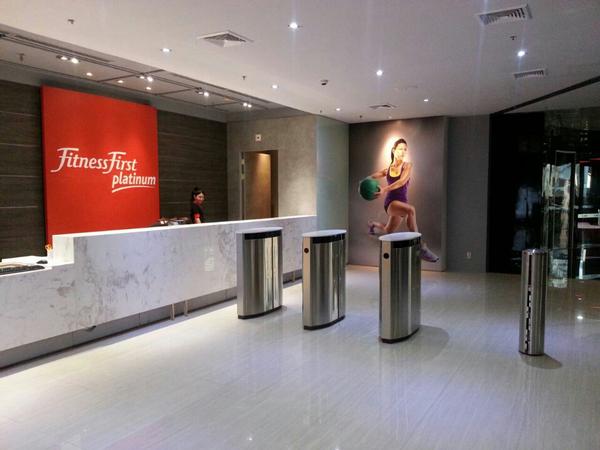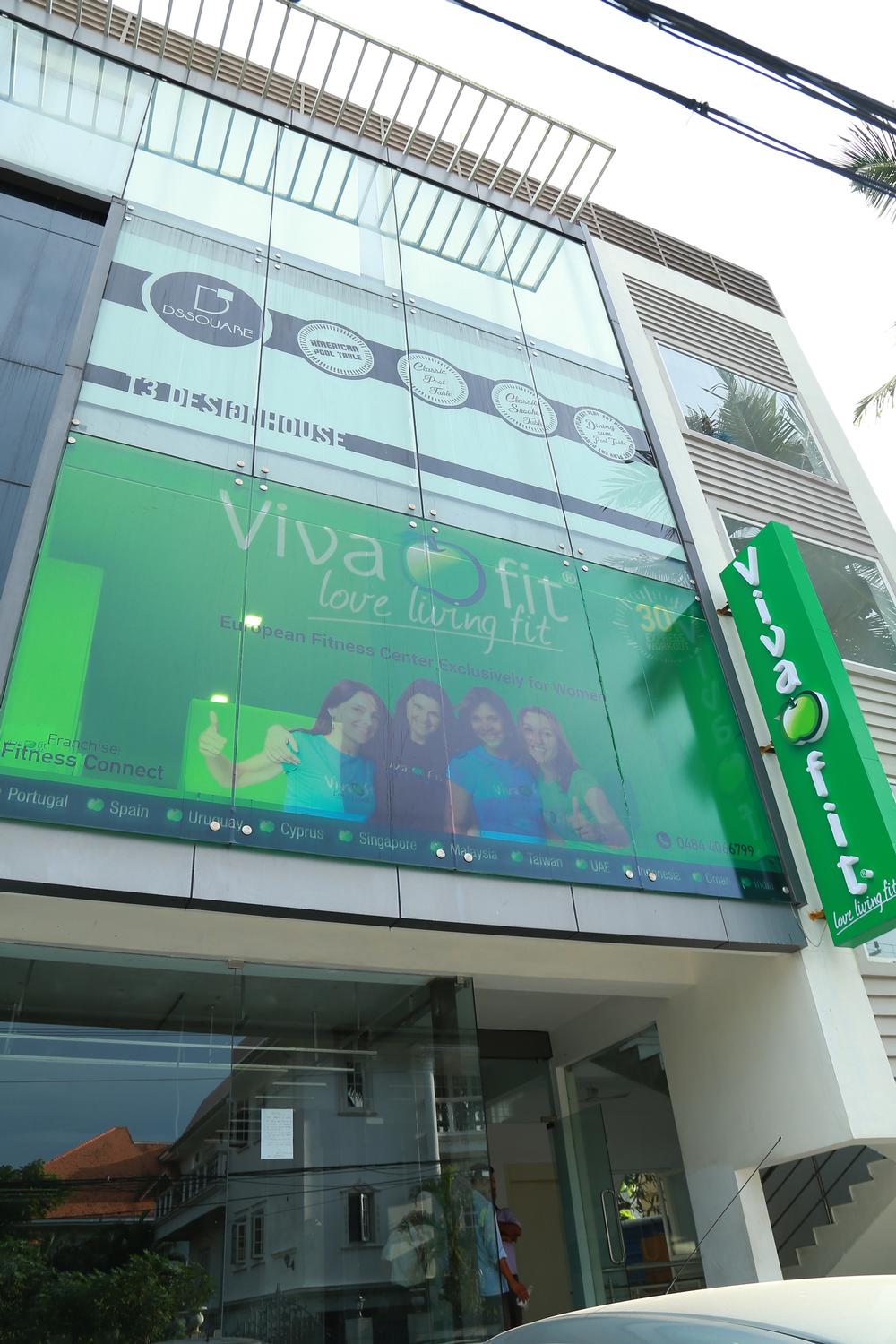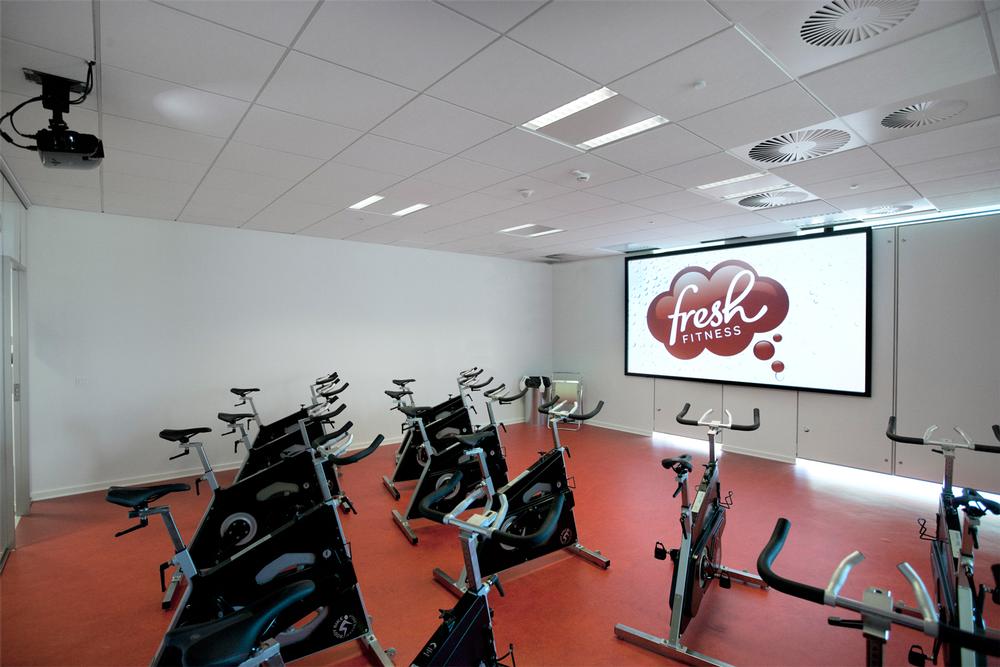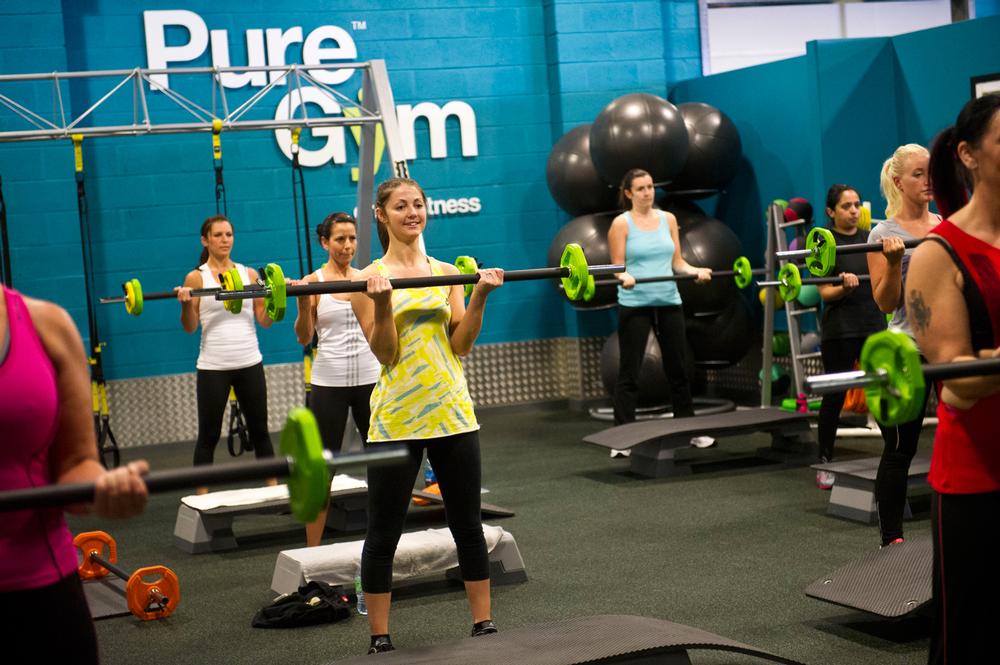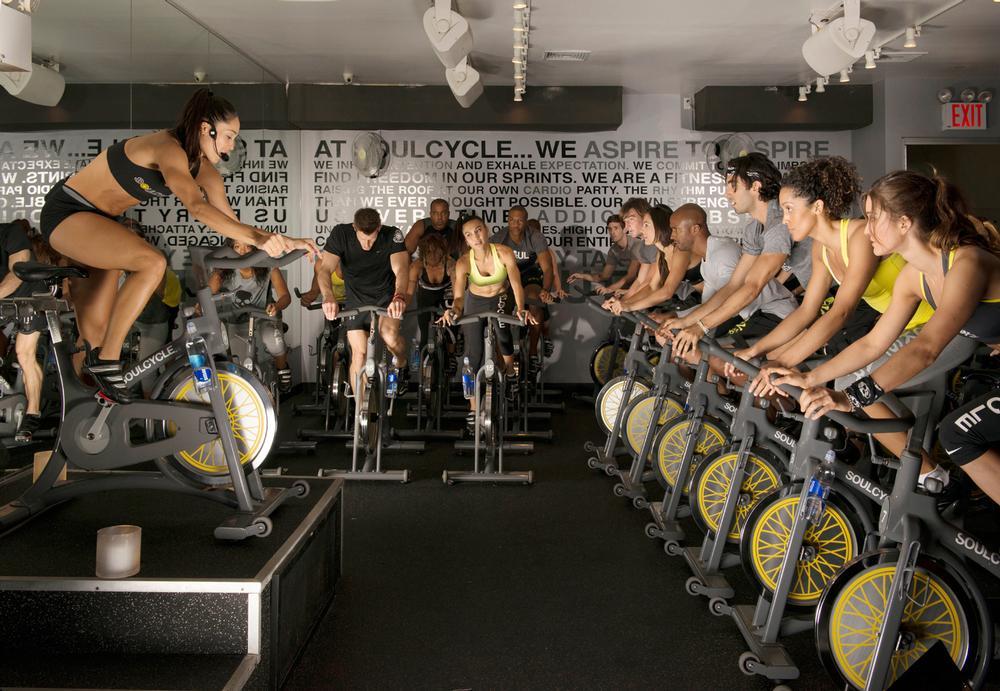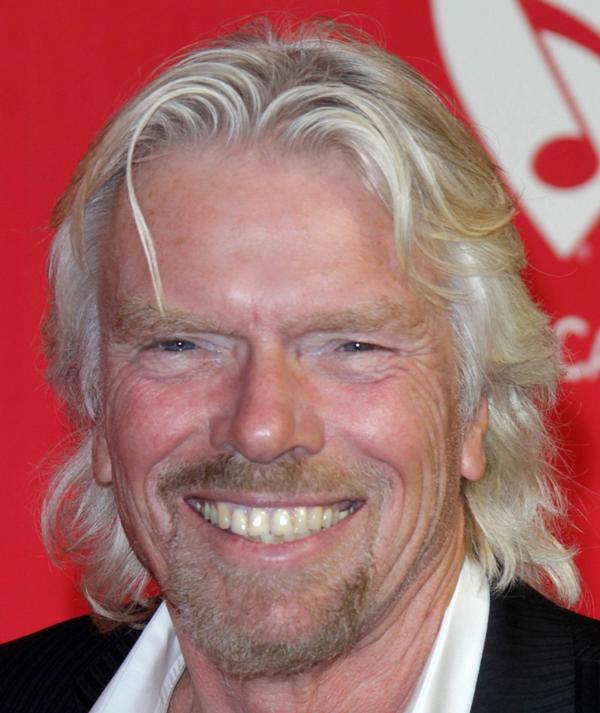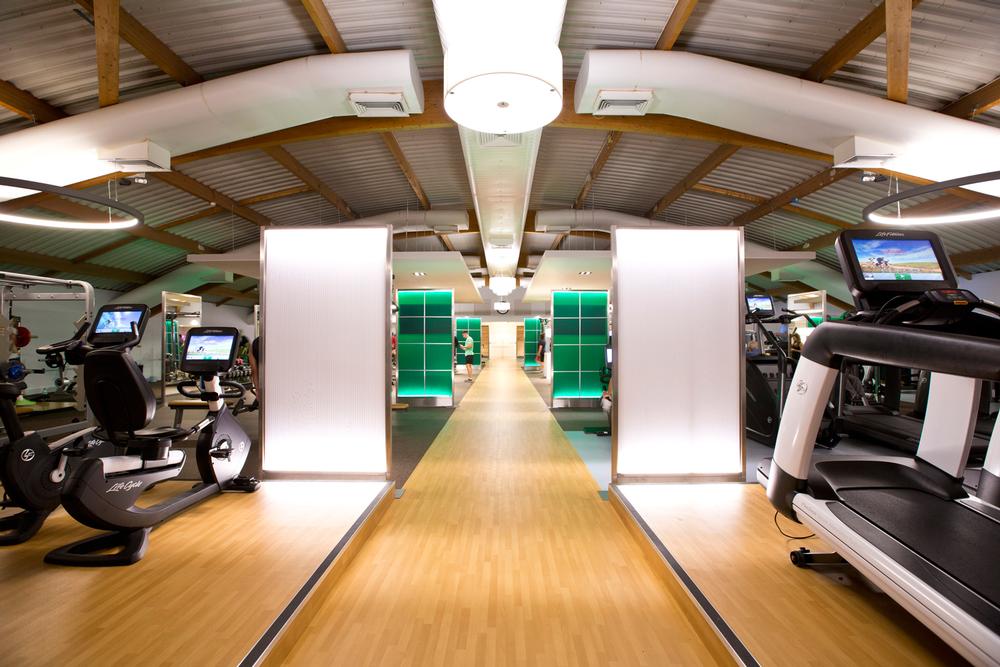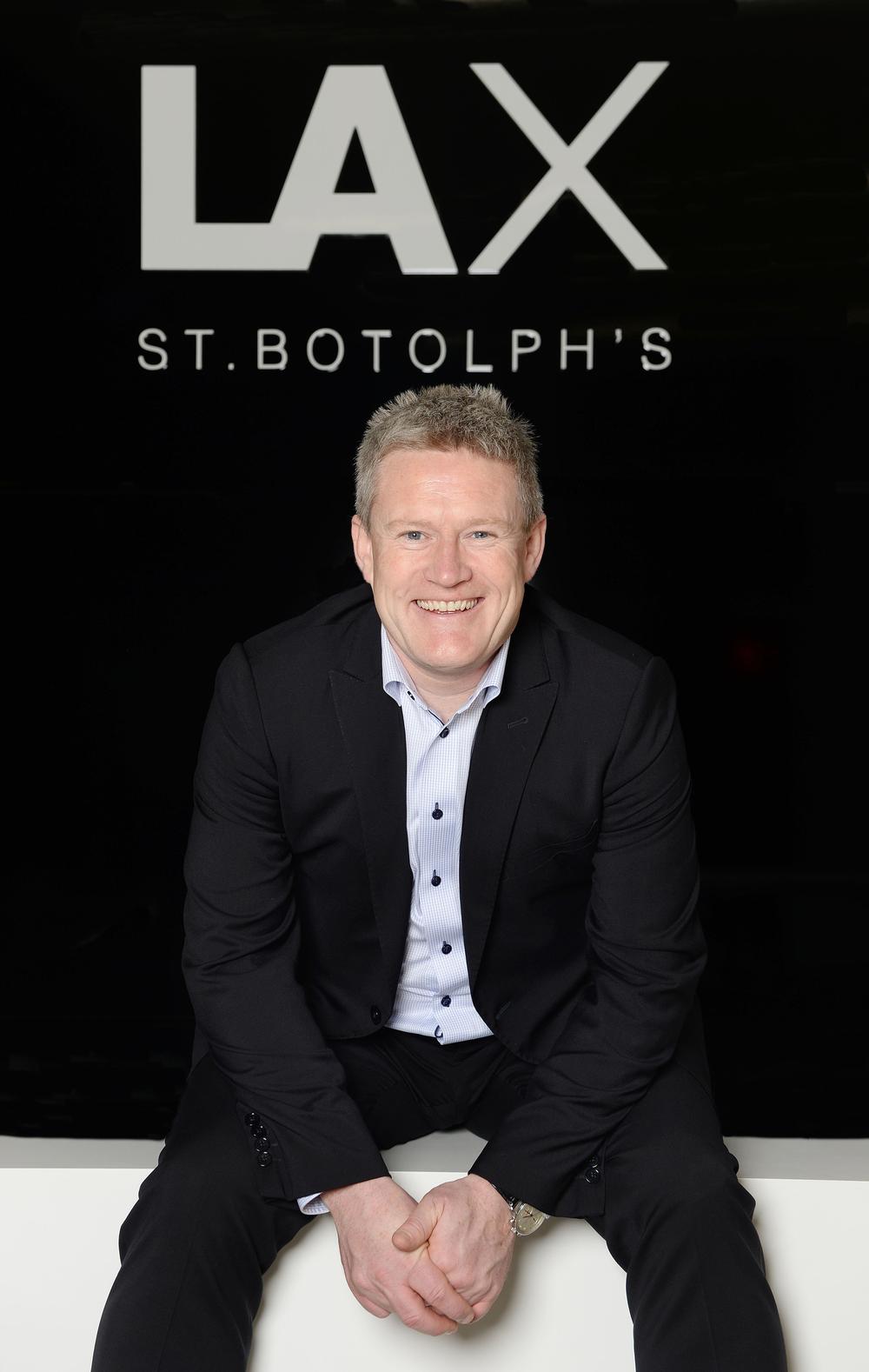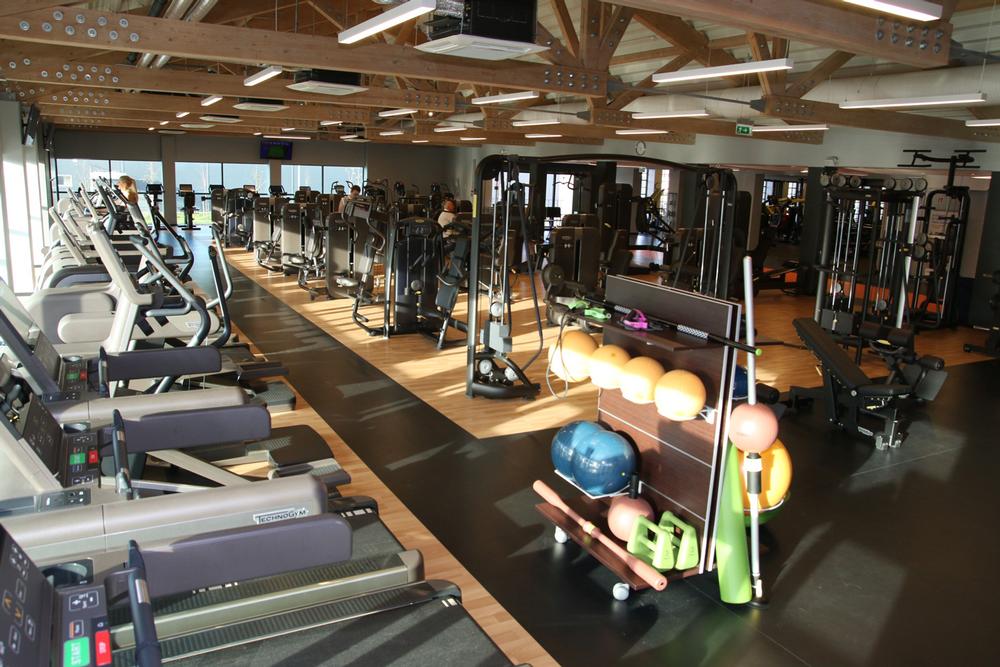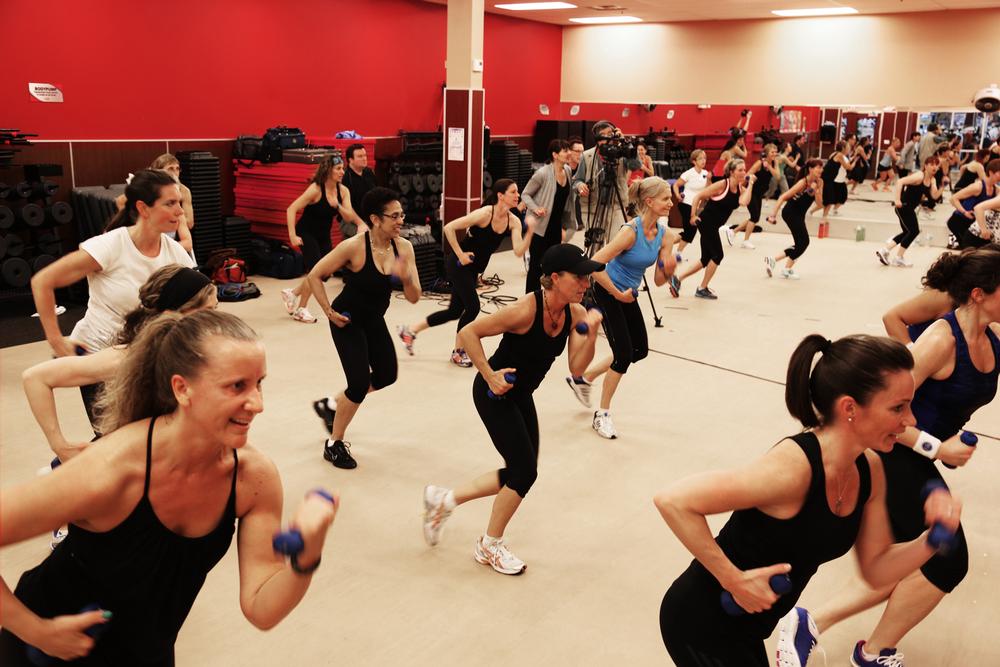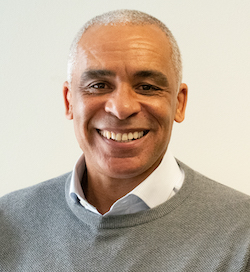GLOBAL: Fitness First
In 2014, Fitness First announced plans to grow its footprint in Asia by around 60 per cent over five years. At the time of its statement, there were 88 Fitness First clubs in Hong Kong, Indonesia, Malaysia, the Philippines, Singapore and Thailand. The intention is to open a further 50 fitness clubs in the region by 2018, expected to cost US$100m (€72m, £59m).
These Asian regions will be the key focus for Fitness First in 2015, although the chain is also planning to open clubs in India and the UK. In total, up to 18 new club openings are planned for 2015 – 12 in Asia, five in India and one in the UK. In Asia, the greatest focus will be on Thailand, with up to five new openings.
Fitness First is also in talks to sell its 80 health clubs in Germany. The capital released by the German sale will, in addition to funding the 50 new Asian clubs, allow for a faster roll-out of the refurbishment and rebranding programme across the UK and Australia, as well as the development of ‘beyond the club’ initiatives and further new concepts like London’s microgym-style club The Beat.
Meanwhile, Fitness First Middle East – which operates under a licence – plans to open six clubs before the end of its financial year (end of June 2015) and a further five sites in the remaining months of 2015. The six sites, leases for which have already been signed, will comprise two in Kuwait (taking the chain to six in that territory), one in Bahrain (to a total of four), and three in the UAE – of which two in Abu Dhabi.
Fitness First Middle East has expanded rapidly over recent years, with a portfolio that has grown from 17 sites in 2011 to 61 clubs across 48 locations (many sites offer separate male and female clubs) by the end of 2014. These clubs are spread across six GCC countries: UAE, Qatar, Bahrain, Kuwait, Saudi Arabia and Jordan.
GLOBAL: Vivafit
Women-only fitness franchise Vivafit has outlined plans for significant international growth in 2015, with a total of 18 clubs already in the pipeline across Taiwan, Indonesia, Saudi Arabia, India, Singapore, Oman, UAE and Spain. It’s also targeting a number of new markets for 2015: Kuwait, Jordan, Tunisia, Ecuador and the US.
Vivafit was established in Portugal in 2003 and has since grown to over 50 clubs, including 20 international sites in markets such as India, Singapore and the Middle East. Further expansion in Portugal is not planned until 2016.
GLOBAL: Anytime Fitness
Global fitness franchise Anytime Fitness has outlined ambitious global expansion plans for 2015. International development director John Kersh told Health Club Management: “For the past five years, we have been consistently opening at least 200 new gyms a year in the US, and we expect that number to remain consistent in 2015 and through the next several years.
“Outside of the US, we expect to open another 200 locations spread between Europe, Asia, Australia and Latin America. We also continue to search for new markets globally in which we can locate suitable partners.”
The operator reached the milestone of 2,500 clubs in May 2014 with the opening of a new facility in Madrid, Spain.
EUROPE: HealthCity International
HealthCity International, one of Europe’s leading health club chains with a total of 338 clubs by the end of 2014 – split across its full-service operation HealthCity (63 clubs) and low-cost operation BasicFit (275 clubs) – has confirmed it will continue its focus on BasicFit in 2015.
BasicFit has already grown at the expense of HealthCity’s full-service clubs over recent years, with a number of sites being reconfigured and rebranded. In 2015, investment in the BasicFit estate will include the opening of 60 new BasicFit clubs.
EUROPE: Health & Fitness Nordic (SATS Elixia)
Scandinavian market leader Health & Fitness Nordic expects to continue its growth in 2015, outlining plans for a “significant number” of new openings.
Approximately five to 10 new clubs will be opened under the premium SATS Elixia brand in Norway, Sweden and Finland – a combination of greenfield sites and relocations. Meanwhile the group’s low-cost operation Fresh Fitness will see around 10 greenfield openings in Norway and Sweden in 2015.
EUROPE: Mrs.Sporty
Women-only fitness franchise Mrs.Sporty – which already operates clubs in seven European countries, with more than 520 sites in Germany and Austria and nearly 30 in Switzerland, Poland, Slovakia, Italy and Spain – has plans both for expansion and repositioning of its operation in 2015.
“We’re changing our training concept, moving away from hydraulic circuits towards functional training supported by our new Pixformance technology,” explains joint CEO Valerie Bönström. “We believe this will help expand our target group, as women love to exercise in this way and the results are amazing.”
She continues: “We plan to open up to 50 new clubs in Germany, five in Switzerland and 15 in Poland in 2015. Additionally, we plan to open our first franchise clubs in the Czech Republic and Moscow in 2015. We also plan to integrate Pixformance in at least 75 per cent of our clubs in the near future.”
UK & INTERNATIONAL: The Gym Group
UK low-cost operator The Gym Group is “positively exploring” overseas markets “in Europe and beyond”, CEO John Treharne told Health Club Management last year. “Certainly we’d be disappointed if things hadn’t progressed by mid-2015,” he added.
But the brand isn’t taking its eye off the UK. “We’re eager to press ahead with our UK expansion and will look at incorporating market trends like HIIT – most likely in our larger clubs – but still maintaining our low-cost concept,” said Treharne.
“The plan is to continue rolling out 20–25 gyms a year and we’ll hit 100 gyms in the UK in 2016, regardless of any opportunities we pursue overseas.”
UK & INTERNATIONAL: Pure Gym
Peter Roberts, the founder and CEO of low-cost operation Pure Gym, has outlined his vision of maintaining an aggressive opening programme of new sites throughout 2015. “We’re continuously looking for new sites throughout the UK and are still interested in future acquisitions of smaller gym groups, with the vision of having 140 gyms open by the end of 2015,” he explains.
“We’re also looking to expand our overseas portfolio in Europe, as well as other countries outside of Europe.”
Pure Gym reached 90 UK sites by the end of 2014, with an addition of 20 new gyms in the second half of the year. This included five new clubs in London, one of which – in Hammersmith – is now the largest of 13 Pure Gyms in the city.
UK & INTERNATIONAL: The énergie Group
The énergie Group has outlined plans to open 36 clubs in England and Wales in the course of 2015, and a further 48 clubs in 2016. “We will open two clubs a month from January 2015, three a month from April, and four a month from October,” says énergie CEO Jan Spaticchia. The focus for 2015 will be on low-cost model Fit4Less with an estimated 30 new sites, including six in Q1.
There will also be international openings, with Fit4Less clubs to open in Latvia and Poland in Q1 2015.
By end of 2014, énergie had a total of 90 clubs open or in presale across its various brands: énergie Fitness, énergie Fitness for Women and Fit4Less. Most are in the UK and Ireland, but with three sites in Latvia and one in Qatar. In addition, the group had 44 fully funded franchisees in the pipeline, with licences for 66 clubs.
UK & INTERNATIONAL: easyGym
Budget chain easyGym, which currently operates 11 gyms in the UK, has outlined plans to add six to eight clubs in the UK in 2015. It also intends to begin international expansion in 2015, with an entry into Europe and Africa.
UK & INTERNATIONAL: Jetts
Australian 24/7 gym chain Jetts is aiming to gain a foothold in Europe with a series of club openings in the Netherlands and the United Kingdom.
Having grown exponentially to 250 clubs in Australia and New Zealand since launching in 2007, Jetts opened its first club in the Dutch student city of Leiden last year, with plans for three more gyms across the UK and Netherlands by mid-2015.
Former Cannons Health Clubs MD Martin Oliver is Jetts’ CEO, while Fitspace director Kenny McAndrew has been appointed to head up UK operations.
UK & EUROPE: Xercise4Less
Low-cost operator Xercise4Less announced a funding package of approximately £20m in Q4 2014, which will enable the operator to double the size of its estate in 2015.
Speaking exclusively to Health Club Management, MD Jon Wright said: “We’re looking to complete 30 new clubs in 2015 – both nationally across the UK and into Europe – building on the 28 or 29 clubs open or in presale by the end of 2014.”
UK & EUROPE: High Five Health Promotion / ECW
Corporate wellbeing specialist High Five Health Promotion, which is based in the Netherlands but entered the UK in 2014 with the acquisition of ECW, has clear growth plans for 2015 and beyond.
CEO Paul Kienstra says: “I believe we can reach 50–100 sites in the UK just through organic growth in five to 10 years, but for me it’s not really about number of sites. It’s about number of employees, about which sites you bring on-board as clients. Of course you have to start small, and we really appreciate small contracts, but we’re also going to aim for the bigger ones. I believe we can reach an annual turnover of £15–20m in five to 10 years.”
It’s not just about organic growth either, with further acquisitions possible.
As for Germany, where the company currently has one site: “We believe Germany should be growing organically, because the market is less mature than in Holland and the UK.”
Kienstra adds: “We now have European reach – we already deliver services in the UK, Germany and the Netherlands, with Belgium on the table. I think we’re well-positioned to go into other countries too, such as Switzerland and Austria, but we won’t do it too fast.”
UK & EUROPE: 1Rebel
1Rebel, launched by co-founders James Balfour and Giles Dean, will open its first club in the City of London in January 2015, followed by a second in April.
“We’d expect to reach five or six clubs in the UK before the end of Q1 2016,” says director/investor Kevin Yates. “We plan to roll the concept out in the wealthier parts of the UK and Europe, expanding across key cities. This includes Scandinavia, where we are already actively investigating opportunities.
“Expansion will be through both company-owned facilities and franchises.”
UK & SOUTH AFRICA: Virgin Active
Interest is hotting up around the Virgin Active business amid ongoing speculation over a possible IPO in 2015.
In the meantime, the operator is continuing to invest in R&D. Last year, it announced plans to launch two new ‘technology-focused’ clubs in London during early 2015. The new clubs – in Merchant Square, Paddington and the Walbrook Building, Cannon Street – will be the chain’s first fully ‘connected’ health clubs in the UK, with digital technology “built in to every step of a member’s journey, from arrival, to the gym floor”. The clubs will see the latest gym equipment link up with fitness apps and devices, enabling members to track and measure all aspects of their exercise routine.
The hi-tech sites are part of Virgin Active’s three-year, £100m investment programme, partly intended to meet members’ growing demand for the latest technological innovation.
Meanwhile, Virgin Active South Africa, which already operates more than 100 clubs across the country, will be rolling out its new Virgin Active RED brand – a premium low-cost offering with large clubs divided into a number of impressive, extensive training zones.
UK & US: SoulCycle
New York-based cycling microgym SoulCycle has confirmed it’s finally planning to come to London in 2015.
SoulCycle has grown from one studio in Manhattan in 2007 and now has 30 US studios across New York, the Hamptons, New Jersey, Connecticut, Los Angeles, Washington DC, Boston and San Francisco. The aim is 60 by the end of 2015. It also plans to make a foray overseas, starting with Britain. “We’re planning on London in the next year,” confirms Gabby Cohen, SoulCycle’s marketing director. “We really try to have more than one studio when we open.”
UK & INDIA: Snap Fitness
Global 24/7 gym franchise Snap Fitness has set its sights on major growth in the UK through a new master development agreement with fitness start-up TwentyTwoYards.
Set up earlier this year by Australian businessmen and fitness enthusiasts Matt Quinn and Scott Jones, TwentyTwoYards plans to open 200 locations over the next four years. An as yet undefined number of these clubs will be operated by TwentyTwoYards, while a significant number will be franchised to third parties. A first location is expected to open in March.
Speaking exclusively to Health Club Management, Quinn said the chain would be seeking to attract “hidden demographics” who can’t afford mid-range club membership fees but who expect a better package than those offered by the low-cost sector.
There are currently three Snap Fitness clubs operating in the UK, with eight more in development. These will now fall under TwentyTwoYards’ remit as the area developer, although they will continue to be legally licensed to Snap Fitness. Going forward, new franchises will be licensed from TwentyTwoYards.
Snap Fitness is also planning to significantly expand its operations in India, where it has already opened 50 clubs since selling its first franchise in 2009. An additional 300 clubs are now set to open by the end of 2017.
At present, Snap Fitness has more than 2,000 clubs open or in development across 15 countries worldwide.
UK: Sports Direct Fitness
High street retailer Sports Direct has outlined plans for its new Sports Direct Fitness gym brand, with an initial offer of £5 a month membership (or £8 a month including group exercise).
Embracing the ethos on which Sports Direct founder Mike Ashley built his retail empire, the gym arm will sell memberships at this low rate with the aim of capturing market share and fostering rapid growth. Plans are for a 200-club estate.
Mel Crossland, head of sales and products for Sports Direct Fitness, told Health Club Management: “We’re expecting large amounts of additional spend from gym users, both because of the convenience of the on-site store for impulse buys and the fact that they’re the exact target market for Sports Direct products.
“The stores will be busy in their own right, so the gyms will also benefit from increased footfall. We’re following the Sports Direct model of focusing on becoming the biggest.”
Sports Direct Fitness made its initial entry into the market by acquiring 23 former LA fitness sites. Going forward, however, the primary model will be offering Sports Direct’s gym and retail outlets side-by-side; the first such site opened in Aintree in mid-December, with openings in Keighley and St Helens hot on its heels. Four more new-builds – two in southern England, one in Wales and one in Scotland – were going through planning as this book went to print.
UK: LA fitness
Having emerged from its CVA late last year, LA fitness has confirmed that the remainder of its estate – approaching 50 clubs – will receive upgrades beginning in early 2015.
Capital will start to be released at the end of Q1 2015, with all clubs due to receive investment – including completing the roll-out of LA fitness’ new Primal functional training zones and programming.
In addition, throughout the course of 2015, a further seven of the 13 central London clubs will be upgraded and rebranded to the LAX by LA fitness brand – the operator’s premium offering. These will join the existing three LAX clubs – St Botolph’s in the City of London, South Kensington and London Wall.
“We’re ‘premiumising’ our offering in London,” confirmed CEO Martin Long, speaking exclusively to Health Club Management. “At this stage I don’t plan for any more than 10 LAX clubs in total, all in prime London locations. However, even those clubs that remain under the LA fitness brand will be brought up a level in terms of their offering.
“In 2015 most of the investment will be within the M25, but the entire estate will have received a facelift by January 2016.”
There are also plans for growth going forward. “I would like to be able to open new clubs, including experimenting with new formats,” said Long. “Our shareholders are currently the banks that have seen us through the CVA, and they’ve been fantastic supporters, but they aren’t the long-term holders of the business. We have a lot of resources available for stage one of our plans, but at some point during 2015 or 2016 we’ll be looking for new investors to help us accelerate our plans and grow.”
UK: JD Gyms
Retail megabrand JD Sports, which announced its entry into the gym market with the launch of its new JD Gyms brand in early 2014, has outlined plans for expansion of this division in 2015.
Having opened its second health club in December 2014 in Liverpool city centre – in a Grade II listed, three-storey property – it will open a further two sites in Q1 2015. “Following this, we’re looking to roll out further sites for the next year. However, we’re also open to expansion through acquisition,” says JD Gyms MD Alun Peacock.
JD Gyms’ health clubs will generally be 15,000–35,000sq ft sites located in high population centres, with a variety of equipment from different manufacturers rather than a reliance on one as part of a ‘best in class’ strategy.
“For the time being, the gyms will not be located within JD Sports stores, but this is not ruled out,” adds Peacock.
Memberships will cost between £15 and £20 a month, with members benefiting from “innovative décor using retail shop fitting experience, and a big emphasis on group exercise with dedicated main studio, group cycling studio and gym floor-based programme”.
UK: David Lloyd Leisure
David Lloyd Leisure has outlined growth plans across its portfolio for 2015, with four new Health & Racquets Club sites scheduled to open, and a further six DL Studios premises throughout the UK. The operator has also unveiled plans to roll out further Orangetheory Fitness locations, both in high street studios and in mainstream DLL clubs.
UK: Gymbox
In July 2014, UK operator Gymbox announced it had gained investment capital of £10m from the Business Growth Fund (BGF), with Clearwater International securing the deal as well as an additional £7m in fresh loans.
Gymbox said it planned to use the funding to build on its portfolio of five clubs in London, with three additional sites already secured when the funding was secured – one of which opened in Old Street in Q4 2014, and with the new Westfield Stratford club due to open in February/March 2015.
The operator also stated a longer-term goal of opening further gyms in London, as well as expanding to other UK cities.
UK: Fitness4less
UK budget operator Fitness4less, which had a portfolio of 14 clubs by the end of 2014, has outlined plans to open a further four to six clubs in 2015. Locations were still to be confirmed at the time of going to press, but director Emma Edwards says it’s likely four of the clubs will be owned by Fitness4less, with the other two new sites to be operated on a franchise basis.
UK: Xen-Do
Xen-Do, a family-run group of martial arts clubs in London, is hoping the launch of its fourth site in Baker Street will be the catalyst for significant expansion in 2015.
“For the time being we aim to grow in London, and we’re then looking to expand in the key regional cities such as Manchester, Birmingham and Bristol,” says owner Rafael Nieto.
The company is exploring the possibility of complementing its standalone independent clubs with the opening of Xen-Do studios inside existing health clubs. “We’d really like to partner with some leisure centre operators,” confirms Nieto.
PORTUGAL: Fitness Hut
Portuguese low-cost operator Fitness Hut announced in July 2014 that it had secured access to €12m (US$16.2m, £9.4m) of growth funding through Portuguese investment fund Oxy Capital.
Off the back of this funding, the health club chain unveiled plans to expand to 12 clubs by the end of Q1 2015 – including five new openings in March – and 20 clubs by the end of 2015.
Fitness Hut was launched in 2011 by Nick Coutts, Andre Groen and JP Carvalho.
SPAIN: AltaFit
Spanish health club franchise AltaFit has announced its intention to continue its growth across the country. Having taken its number of clubs to the mid-30s by the end of 2014, it outlined plans to open 20 gyms a year, to reach 100 gyms in 2018.
The low-cost operation charges €19.90 a month + VAT, which includes gym and group exercise classes.
FINLAND: GoGo
Family-owned Finnish operation GoGo Liikuntakeskus Oy, which had 10 clubs open by the end of 2014 – three full-service premium GoGo clubs, and seven GoGo Express budget clubs – has said it plans to open a further three clubs in 2015, all under the GoGo Express brand.
LITHUANIA: Impuls
Lithuanian chain Impuls, which operated 11 premium clubs in the country by the end of 2014, has strong expansion plans for 2015. In addition to opening new clubs under the Impuls brand, both as new sites and acquisitions, the operator will also be launching a budget brand.
Set to operate under the brand name Lemon Gym, the new budget concept will be structured around approximately 1,000sq m of floor space. There will be no group exercise, but high quality gyms with good parking and visibility.
The first Lemon Gym is scheduled to open in January 2015 in Lithuania’s capital city Vilnius, and is set to be the first budget club in the country. At least four more budget clubs will then open in the first half of 2015, with the whole estate set to grow to 20 clubs during the course of the year.
SOUTH AFRICA: Zone Fitness
South African budget fitness operator Zone Fitness is, according to MD Du Toit Britz, “in a growth phase, with plans to open four to five clubs a year”.
The chain, which launched in 2002, currently operates 18 clubs with over 100,000 members – including three new clubs that opened in Q4 2014. “These clubs are mostly in Cape Town, with much of the new expansion now focused on Johannesburg and Pretoria,” adds Britz.
The business is completely privately owned and managed by four partners.
CANADA: GoodLife Fitness
Canadian operator GoodLife has unveiled plans to grow both its existing GoodLife Fitness estate, and its new low-cost brand, Fit4Less by GoodLife.
Fit4Less is designed to be a fun, energetic, low-cost offering. As with GoodLife Fitness, the focus is on providing convenient, caring environments that promote no judgements.
GoodLife’s long-term intention is to grow to 500 Fit4Less clubs nationwide. Overarching this, the ultimate goal is to have over 1,000 clubs in Canada under the GoodLife umbrella, which includes GoodLife Fitness, Fit4Less, and Énergie Cardio and EconoFitness in Quebec.








